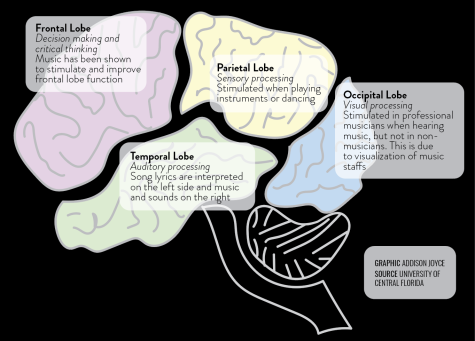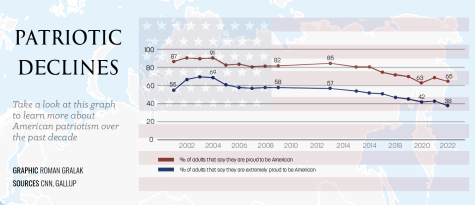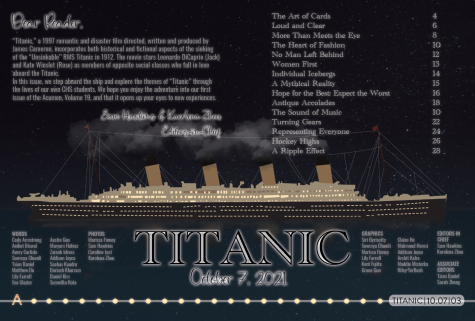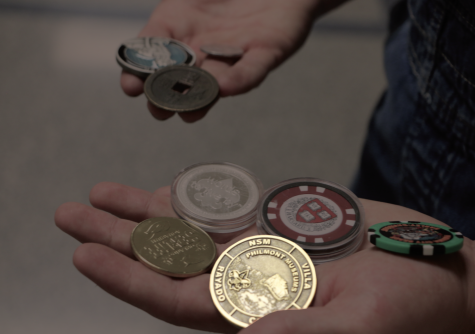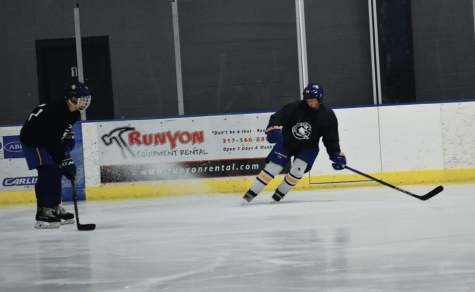The Sound of Music
Music evokes emotional responses in students, bands director
For many people, music is just background noise in a café. They may not stop to think twice about how that music affects their brains and how it makes them feel. For the ordinary person, watching films with background instrumental music may not have a conscious effect on them or their mood.
But for Clizia Martini, Orchestra Council member and senior, music has become a major part of her life, and she said she is able to recognize what the effect classical music has on her and others and how it can change the moods of listeners.
“Once I started getting more into violin and I started playing more and enjoying it, I started to appreciate classical music more and it really makes me feel more connected,” she said.
Research backs up the neurological effects of classical music on people. A study from the U.S. National Library of Medicine in 2001 found listening to Mozart can enhance spatial-temporal reasoning, and can also incite an emotional release. The emotional release from this so-called “Mozart Effect” could mean something different for everyone. To some people, according to the study, it could mean feeling suspense and excitement due to the dramatic background music in a movie. To others, this emotional release could be merely letting go of tensions and relaxing to calm music.
Filmmakers often take advantage of this effect. For example, ‘Titanic” director James Cameron incorporated the song “My Heart Will Go On” by Celine Dion to add drama to the film and make viewers feel the connection between the two main characters, Rose and Jack.
Musicians said they work hard to get emotions across to listeners, but they also play music because of the feeling it invokes in themselves, too. Martini said the adrenaline rush when playing a concert is one of the reasons she participates in orchestra.
“Sometimes (during a concert) it feels like I’m running a race trying to get first place and I just want other people to feel that excitement too,” she said.
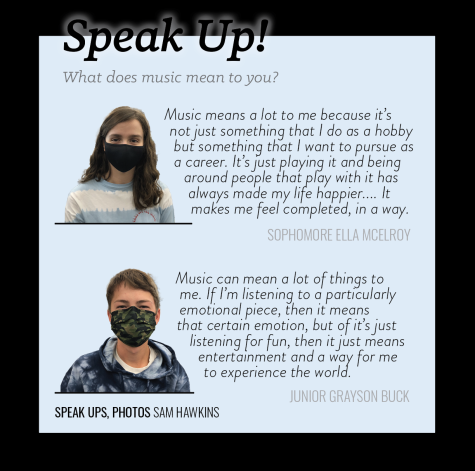
Kyle Young, associate director of bands, said he agreed that musicians not only strive to portray deep emotions, but to feel them, too.
“When a musician gives an emotional effort in their performance, an audience member can feel and see and hear that effort being given,” he said. “Classical music is unique in that there is a large amount of the repertoire that does not include voice or lyrics. The composer has to try and create a variety of emotions simply from the notes and dynamics written on the page.”
Martini is not alone in her emotional responses to music. Band member and junior Owen Bruner said he has a passion for music and it holds a power people don’t realize.
“I wouldn’t really have many set goals or happiness if I didn’t have music,” he said. “It really plays a big role in how I live my life and what I look towards in the future.”
According to a 2020 study from UC Berkeley, music affects different people in different ways and can incite 27 identifiable emotions.
“Composers can write different pieces that can have different effects.” Bruner said. “There are certain chords that can incite sadness and you hear it and think that’s sad or some pretty wonky chords make you think mysterious and get you in a certain mood.”
Young said music has the power not only to move people in a cinematic way, but can provide an escape from reality as well.
“Music is often therapeutic for me.” Young said. “There is a tremendous amount of therapy that music can provide and is unique to the listener.”
Beyond providing an adrenaline rush during an orchestra concert, music is becoming a more common treatment for various mental and physical health conditions. A report from the Cleveland Clinic on music therapy said music can cause a decrease in blood pressure, reduce pain, and even call up repressed emotions. Music has been shown to help people with autism spectrum disorder (ASD) or post-traumatic stress disorder (PTSD), as well as physically, such as in cases of hypertension or epilepsy.
Martini said, “(Music) honestly makes me so happy and makes me think ‘wow, it’s crazy that we’re here right now being able to play all of this and that we’re sounding truly incredible.’”
